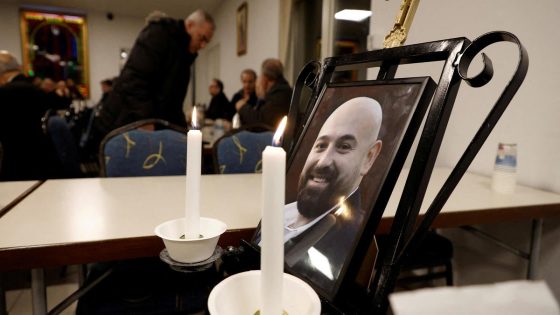In a tragic turn of events that shocked both the local community and the nation, 40-year-old Bradley Dawson has been sentenced to life in prison in Fiji for the chilling murder of his wife, 36-year-old Christe Chen, during their honeymoon in December 2024. The couple, who had traveled to the exotic islands for a celebration of their love, found themselves at the center of a harrowing case that would unfold over the following months.
- Tennessee man sentenced to life in Fiji
- Victim was Christe Chen, 36 years old
- Murder occurred during 2022 honeymoon
- Judge stated intent to cause death
- Dawson fled the scene by kayak
- Chen's remains were cremated due to damage
The incident, which unfolded at an exclusive island resort, came to light following an eight-day trial where it was determined that Dawson had engaged in behavior that led to his wife’s death. The court heard how the couple had been heard arguing on the evening leading up to the tragic event, intensifying fears that something dire was amiss. The following day, resort staff discovered Chen’s lifeless body, bearing multiple blunt force trauma wounds to her head—evidence of a violent confrontation that severed the couple’s future in an instant.
Justice Riyaz Hamza, presiding over the Lautoka High Court, expressed his dismay at Dawson’s actions. “Your conduct after the incident was appalling,” he stated during the sentencing, referring to how Dawson fled the scene by kayak and attempted to escape to a nearby island. This flight, coupled with Dawson’s belongings—including his passport—suggested he had premeditated his escape, demonstrating a callous disregard for the gravity of his actions.
The prosecutor presented a compelling case, illustrating that Dawson either intended to cause harm to Chen or acted recklessly in a fit of rage. This assertion was supported by testimonies from those close to the couple, including statements from friends and family who described Chen as a beloved pharmacist and a dedicated graduate of the University of Tennessee Health Science Center. Witnesses recounted the emotional turmoil surrounding the couple during their honeymoon, highlighting the complexities of relationships that can sometimes lead to tragic conclusions.
Dawson’s behavior post-crime further compounded the horror of that night. Nearly 36 hours after Chen’s body was found, authorities located him on a nearby island, emphasizing the premeditated nature of his flight. Hamza’s remarks during the sentencing underscored the judge’s revulsion: “Having inflicted serious and life-threatening injuries to the deceased, you fled the scene of the crime, leaving the deceased alone and helpless.”
The legal proceedings brought not only justice for Chen but also opened up discussions surrounding domestic violence, especially within the context of seemingly idyllic situations such as a honeymoon. The insidious nature of such crimes cannot be overstated, as evidenced by legal analysts who stress the importance of addressing not just the outcomes but the underlying issues that lead to such tragedies.
Currently, Dawson faces a minimum sentence of 18 years before he may be considered for a pardon, a decision that reflects the legal ramifications of his actions. As the community comes to grips with this harrowing incident, advocacy groups are using the case as a platform to raise awareness about the warning signs of domestic violence, emphasizing the need for vigilance even in joyous settings.
As the legal process continues to unfold, the implications of this case resonate far beyond the courtroom. The tragic loss of Christe Chen serves as a stark reminder of the fragility of life and the urgent need for awareness and prevention of domestic violence in all forms. Moving forward, discussions about the relationship dynamics, the importance of mental health support, and the need for thorough investigations into domestic disputes are expected to remain at the forefront of community dialogues.

































